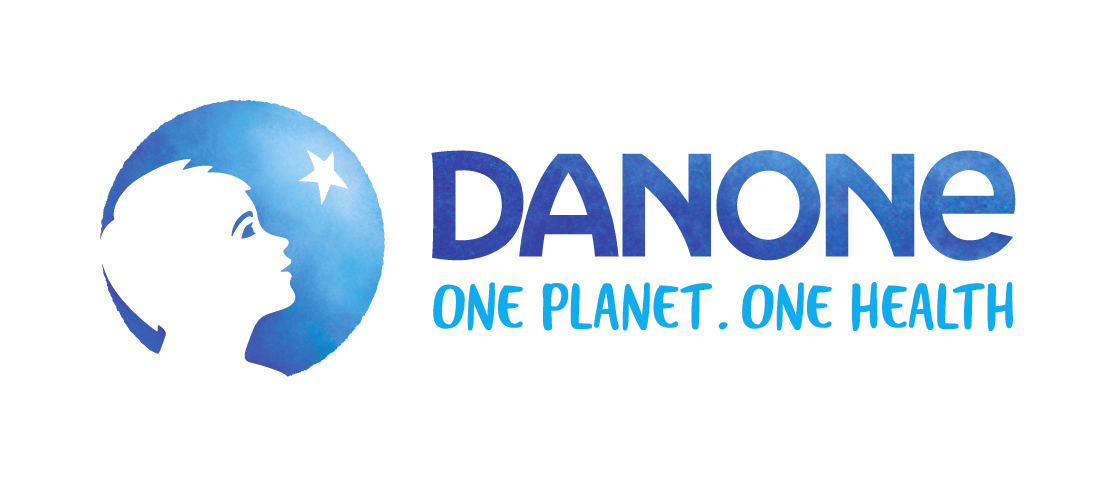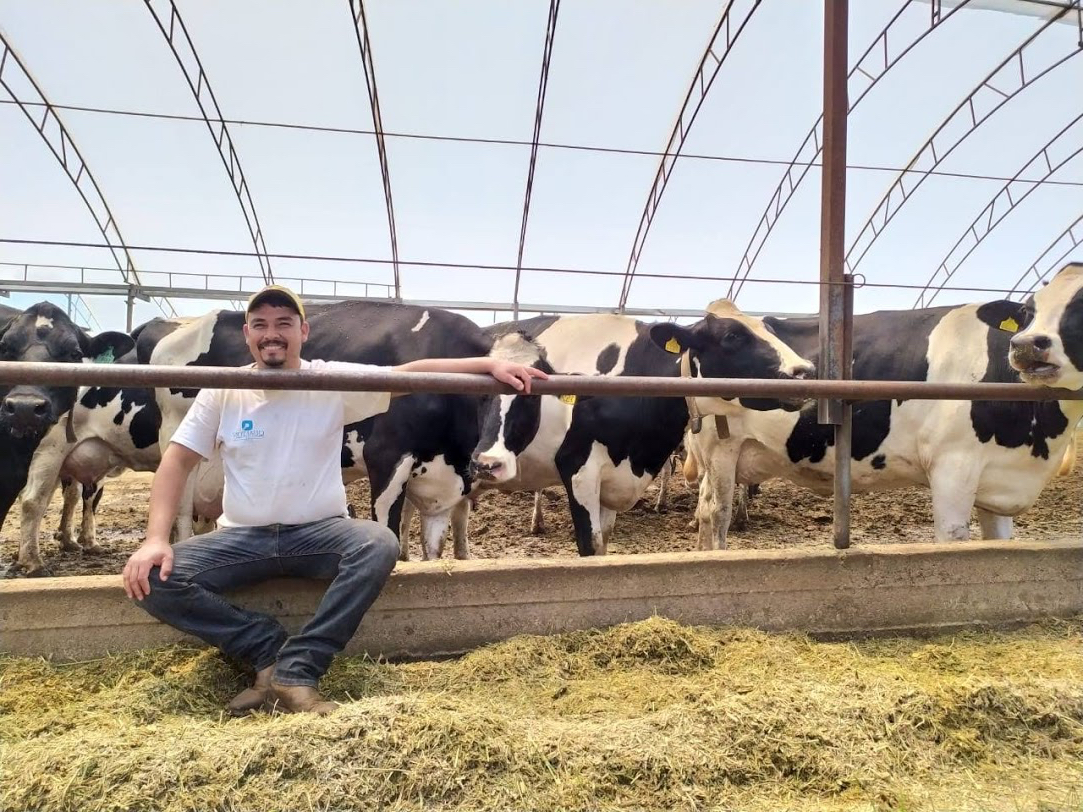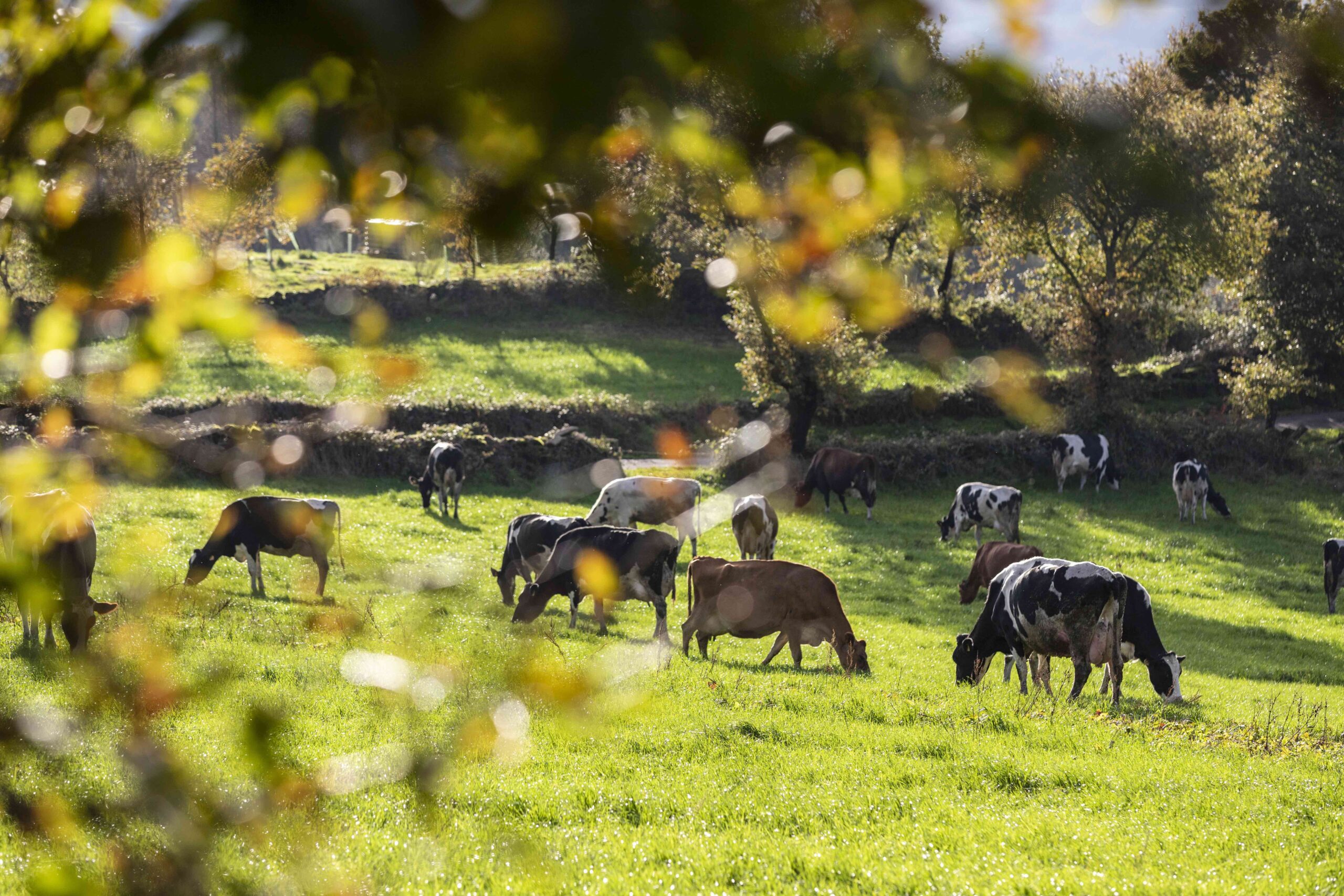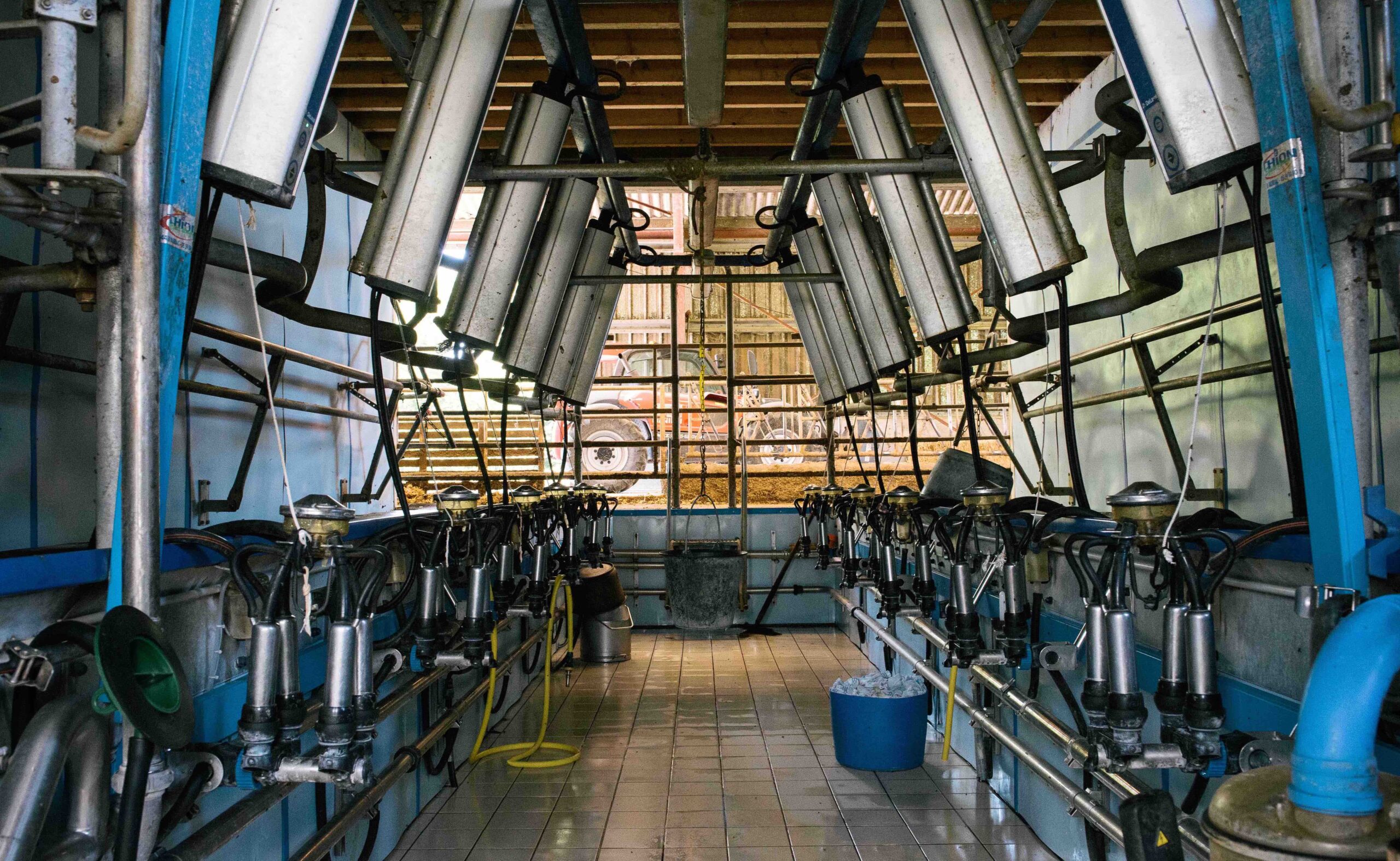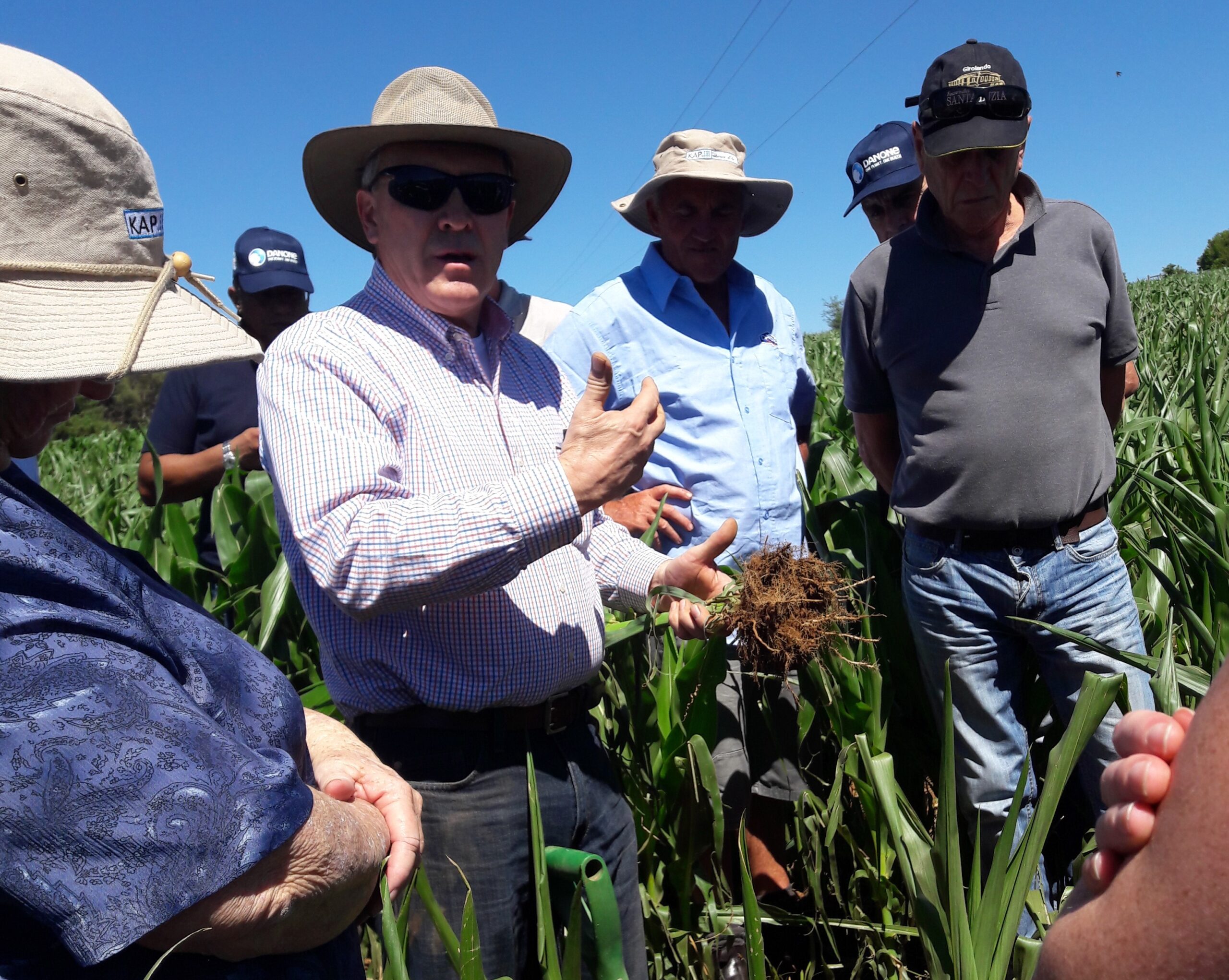
Water stewardship and soil health
in South Africa
The majority of South Africa is too dry and hot for dairy farming, so there are limited districts in South Africa where dairy farming is possible. And the water in those areas is hotly contested. It's oversubscribed.
Water stewardship and soil health
South Africa
 Planet
Planet
In South Africa, 19 Danone farms produce 100-120 million litres of milk every year.
90% of South African milk is sourced directly from farmers
Most dairy farms are pasture (grass) based and rely on rainfall and irrigation for growing their pastures. Increasing the need for extensive grass-based systems that require lots of water to irrigate. That’s no easy task considering the African climate and only 500 to 600 millimetres of rainfall per year.
South-Africa is water-stressed
However, some areas in the eastern, southern and central parts of the country – despite temperatures reaching 32 °C in summer and 5°C -10°C in winter – have the climate for dairy farming. But the water in these districts is hotly contested. It’s oversubscribed. It’s a national issue where water supply is at demand in normal rainfall years. But quickly becomes overstretched during drought periods. There is very little leeway.
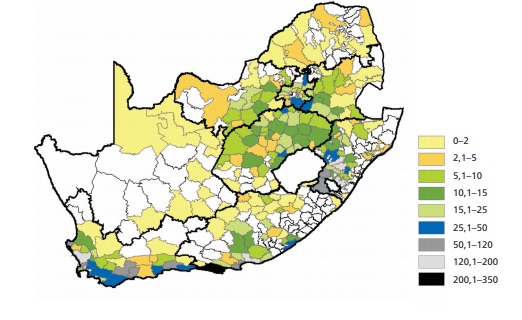
(source: Lactodata, Vol 23, No.2. November 2020)
A complicated history of water rights
There are also disputes over water rights because of the injustices of the past. The apartheid-era flows into the present and results in a lot of illegal water use.
Working towards responsible water use through the Watership programme
The Watership programme focuses on improving farmers’ water usage, reducing wastage and using water as efficiently as possible. The programme is currently in the process of securing external funding.
Soil Health is our foot in the door
Focusing on soil health is a way to gain trust with South African farmers. It’s an anchor to start a conversation because soil health has a direct and easy-to-understand benefit.
It makes economic sense. If your soil is healthy, it holds more organic matter. More organic matter means it’s more drought resilient, more flood resilient and more fertile. All that implies you have to use less artificial fertilisers and have to spend less on irrigation.
So, taking care of your soil becomes a conversation about saving money. It has a major impact on your electricity bill. A farmer in South Africa will spend anywhere between 15 to 16.000 euros on monthly electricity. We can help them to bring that number down.
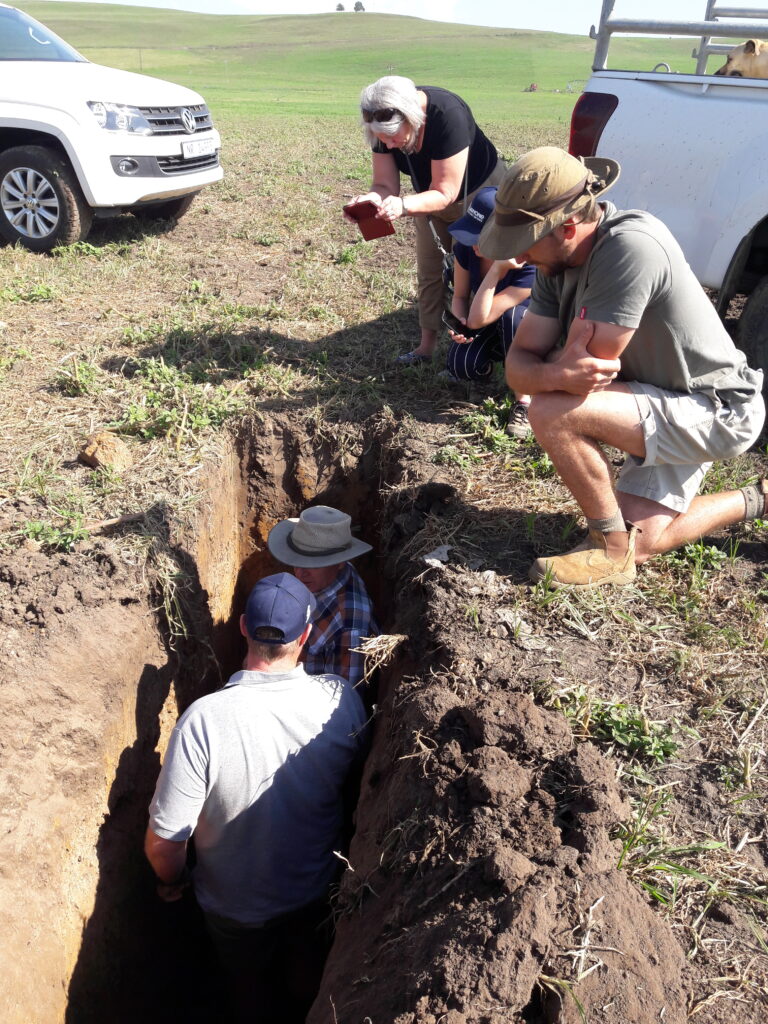
Workshopping with farmers
Another way to build trust is by workshopping with farmers. We invited Jay Fuhrer, a world-renowned soil health expert, to South Africa. Together, we dug soil pits and examined the soils on the farms we work with. The key learnings from this were:
- 1.You don’t disturb your soil, or you disturb it as little as possible, meaning you don’t plough.
- 2.You also want to plant many different species into your soil because it improves soil health. The more different types of plants you have, the more nutrients your soil has.
- 3.You want to avoid using artificial fertiliser. It dries out the soil and makes it infertile in the long term.
- 4.You want to cover your soil, so it stays nice and warm in the winter and cool in the summer.
These are simple techniques, but often feel counterintuitive to what farmers have been doing for years.
Climate-smart farming
Change happens quite slowly in agriculture because of its high risks and low margins. But we need to adapt more quickly, and we need to reduce those risks of adaption for our farmers.
With electricity being one of the biggest costs farmers have, they are eager to bring that down. That is why we went into farms to look at their irrigation systems.
Irrigation systems are fickle. The designs can be outdated; you can have leaks, or something as simple as water pressure can impact the soil health and your electricity bill.
We started fixing these issues and aligning irrigation with rainfall, evaporation, and plant need. All for more efficient water use to lower the costs for our farmers.
Partnering with WWF and IFC
Partnering with the Dutch fund for climate and development DFCD and the International Finance Cooperation IFC to leverage green finance and help bridge the risk of transitioning from traditional into regenerative agriculture.
For example
If a farmer needs new irrigation, he can access green funding on more favourable terms.
The idea of green funding is not new but applying it to dairy hasn’t been done before in South Africa.
We’re on the verge of signing these contracts. It will give us a year to move our plans forward and improve soil health and water efficiency.
Rejigging our balance books to accommodate for the real cost of milk
Danone is leading the way. And other dairy companies and sectors will follow.
For example:
French, Belgium and Spanish farmers have managed to renegotiate the structure of their milk price with Danone. Ensuring a fair wage and a better planet for all.
To deliver on our promise of one planet one health, we’re reducing risks for farmers and sharing the costs. Because it benefits all of us. It secures our supply chain, it’s better for the planet, and it helps us meet the goals we set in terms of climate change and carbon neutrality.
Becoming carbon sinks
Research has shown if you improve the carbon percentage in your soil, it’s a huge carbon sink. There is huge untapped potential in agriculture to act as carbon sinks rather than carbon sources, as they are often perceived.
You might also be interested in:
Flora in Brazil

